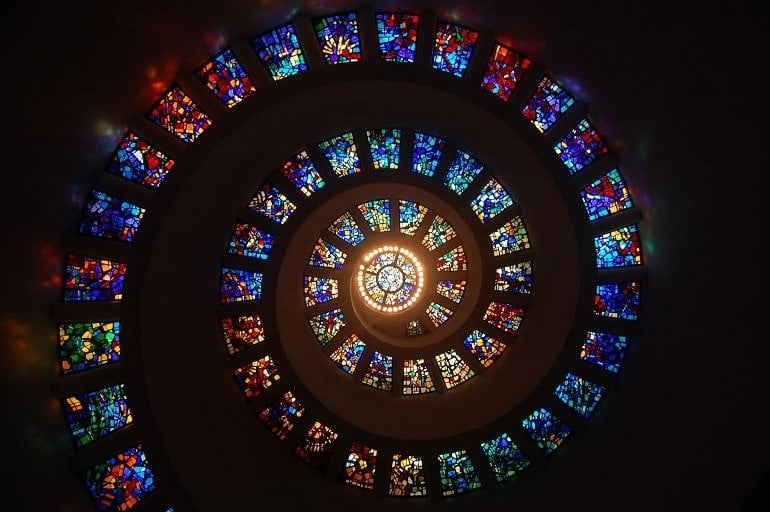Summary: Researchers report religious people who relate to a God in an uncertain or anxious manner are more likely to experience psychological distress disorders, including anxiety, paranoia, and obsessive compulsions. Findings reveal how different styles of attachment to a deity may be associated with poorer mental health outcomes.
Source: Westmont College
A national study examines the link between a perceived relationship with God and mental health from a sample of more than 1,600 Americans.
The research suggests that religious believers who relate to God in an uncertain or anxious manner are more likely to experience symptoms of psychological distress, including anxiety, paranoia, obsession and compulsion.
The study, “Attachment to God and Psychological Distress: Evidence of a Curvilinear Relationship” appears in the Journal for the Scientific Study of Religion. It relies on data from the 2010 Baylor Religion Survey, a national survey of American religious beliefs, values, and behaviors. The research sheds light on how different styles of connecting to God—or attaching to God—may be related to poorer mental health.
“Most research on attachment to God has suggested a simple linear relationship, where a less avoidant—or secure—relationship is associated with better mental health and a more avoidant relationship with worse,” said Blake Victor Kent, assistant professor of sociology at Westmont College. “But there have been hints in the research that the relationship may actually look more like an upside down U-shaped curve. So that’s what we looked for, and that’s what we found.”
The inverse curve was found in a scale composed of six items measuring avoidance and non-avoidance in relationship with God. Sample items read:
- “I have a warm relationship with God.”
- “God knows when I need support.”
- “God seems to have little or no interest in my personal affairs.”
“Essentially what we found is that those who are less avoidant and those who are more avoidant in their relationship with God both have lower levels of psychological distress,” said study co-author W. Matthew Henderson, assistant professor of sociology at Union University.
“That challenges the existing research. These data suggest it’s only those in the middle, those who experience uncertainty in the relationship with God, and not the avoidant, that have worse mental health.”

This doesn’t mean avoidant attachment to God is unproblematic, however, according to Kent. “Avoidance is what happens when you just stop relying on God—you don’t trust that God will be there for you, so you learn to rely on yourself,” he said. “And that extends to other people as well.”
While the study suggests avoidance may not be a red flag for some aspects of mental health, the authors contend avoidance can still cause problems in relationships, including relationships in the church. “The more we understand how we relate to God and others, the healthier we can be,” Henderson said.
About this neurotheology and mental health research news
Author: Scott Craig
Source: Westmont College
Contact: Scott Craig – Westmont College
Image: The image is in the public domain
Original Research: Closed access.
“Attachment to God and Psychological Distress: Evidence of a Curvilinear Relationship” by W. Matthew Henderson and Blake Victor Kent. Journal for the Scientific Study of Religion
Abstract
Attachment to God and Psychological Distress: Evidence of a Curvilinear Relationship
Previous religion/spirituality (R/S) research on attachment to God and mental well-being has relied entirely on linear models. Scholars, however, have called for more nuanced analysis of religious beliefs and dispositions relative to mental health, and several studies using a nonlinear approach have yielded fruitful results with a handful of R/S predictors.
Relying on national data from the 2010 Baylor Religion Survey, this study investigates potential nonlinear associations between attachment to God and psychological distress by fitting curvilinear models of avoidant attachment to God and multiple measures of general and psychological distress. For conceptual reasons, linear models of anxious attachment are also employed.
Results reveal a nonlinear relationship between avoidant/secure attachment and distress and a deleterious linear relationship between anxious attachment to God and distress.
This supports the overall hypothesis that anxiety or a lack of certainty about one’s relationship with the divine represents a threat to psychological well-being.







